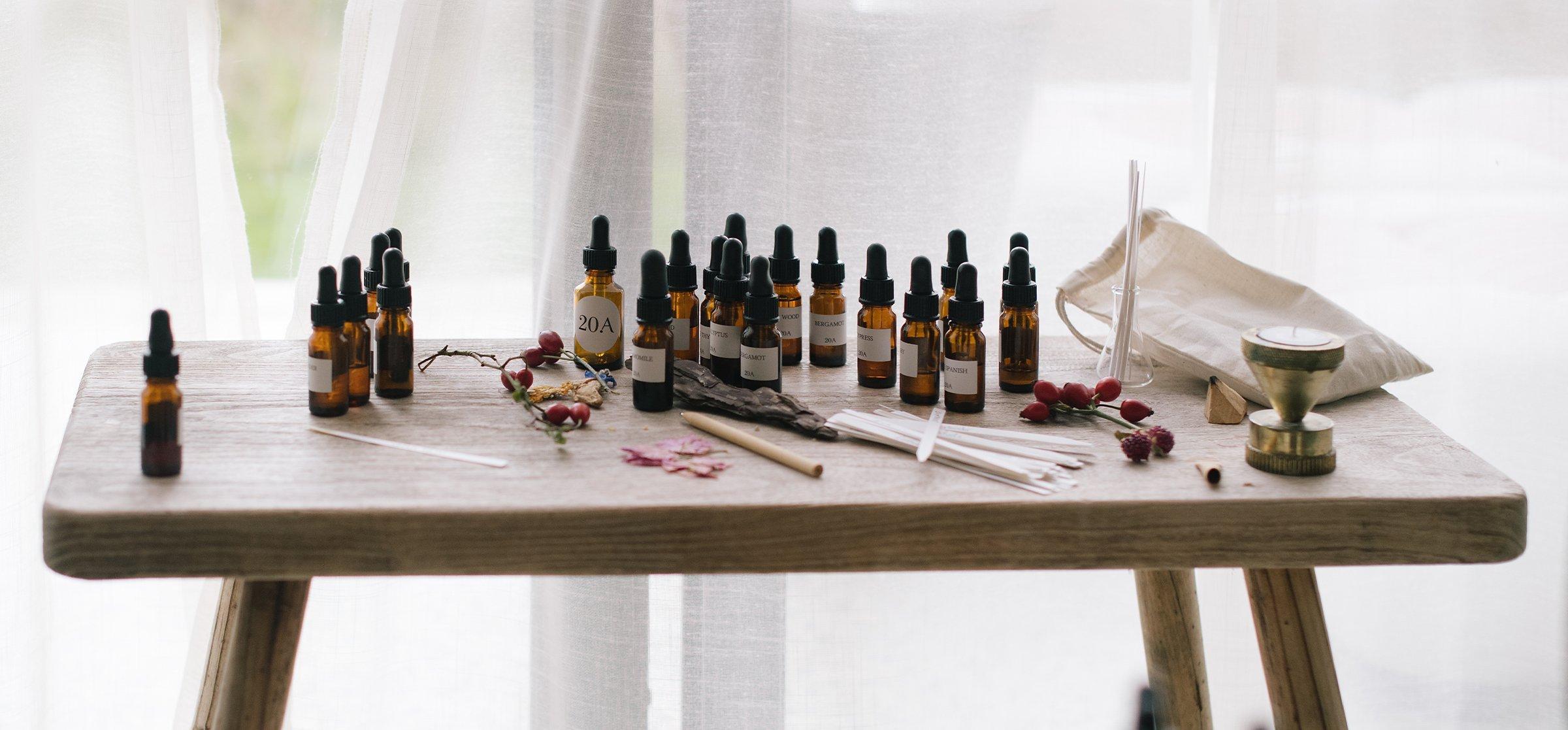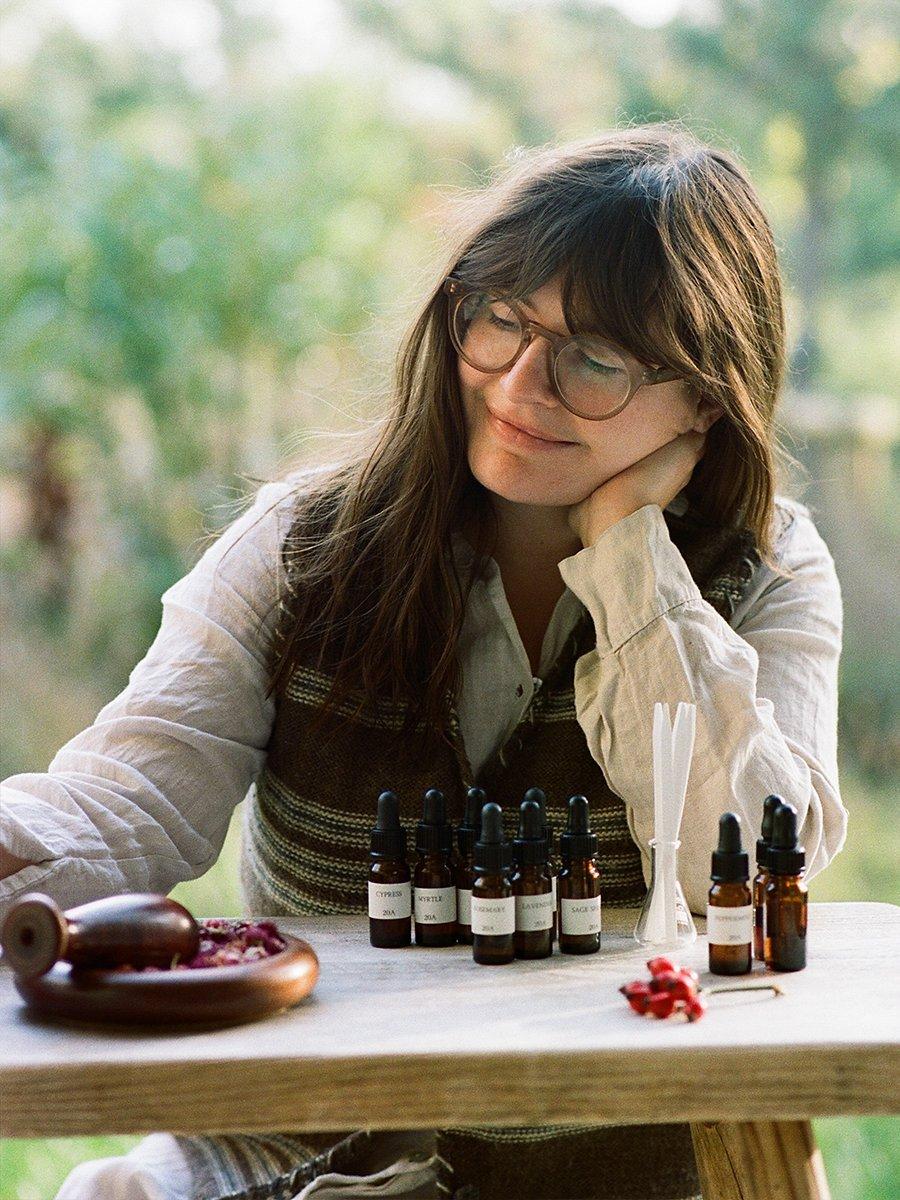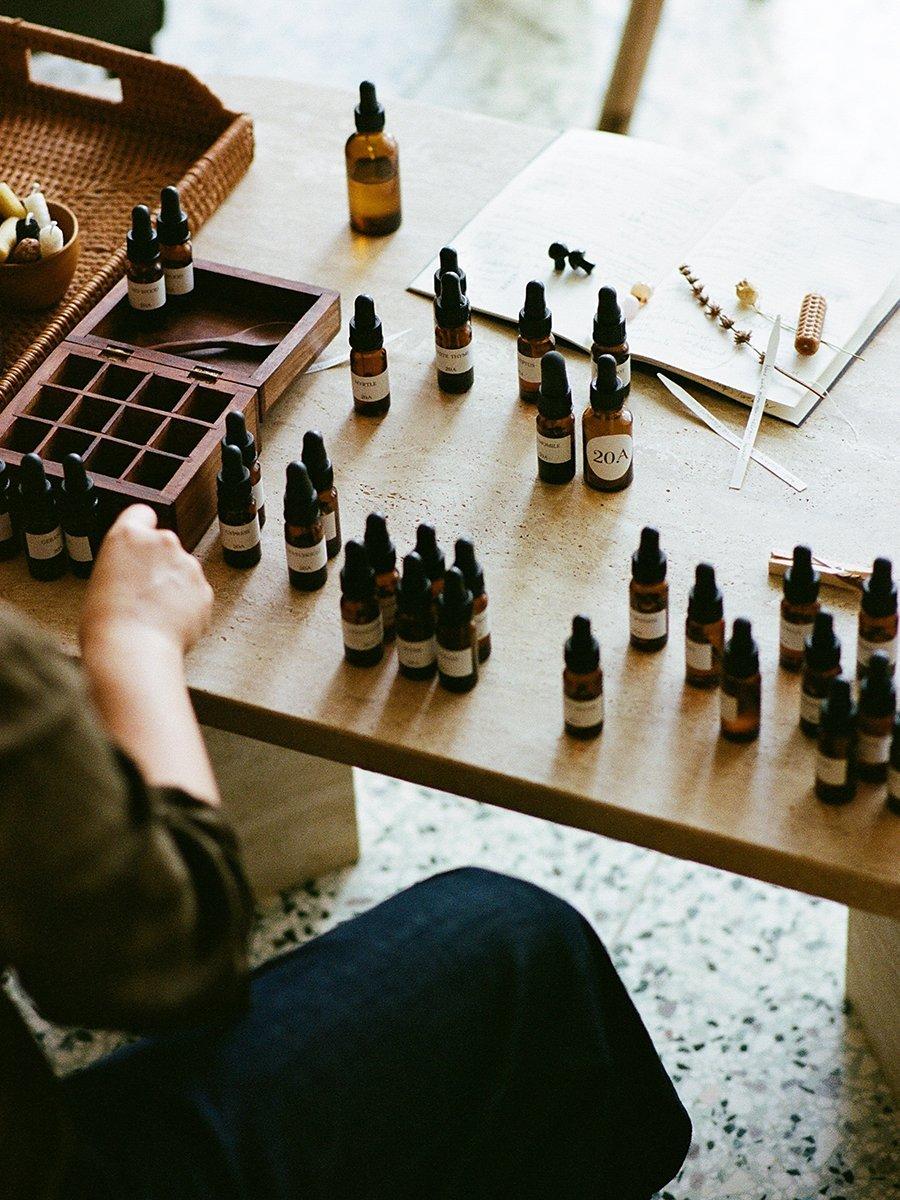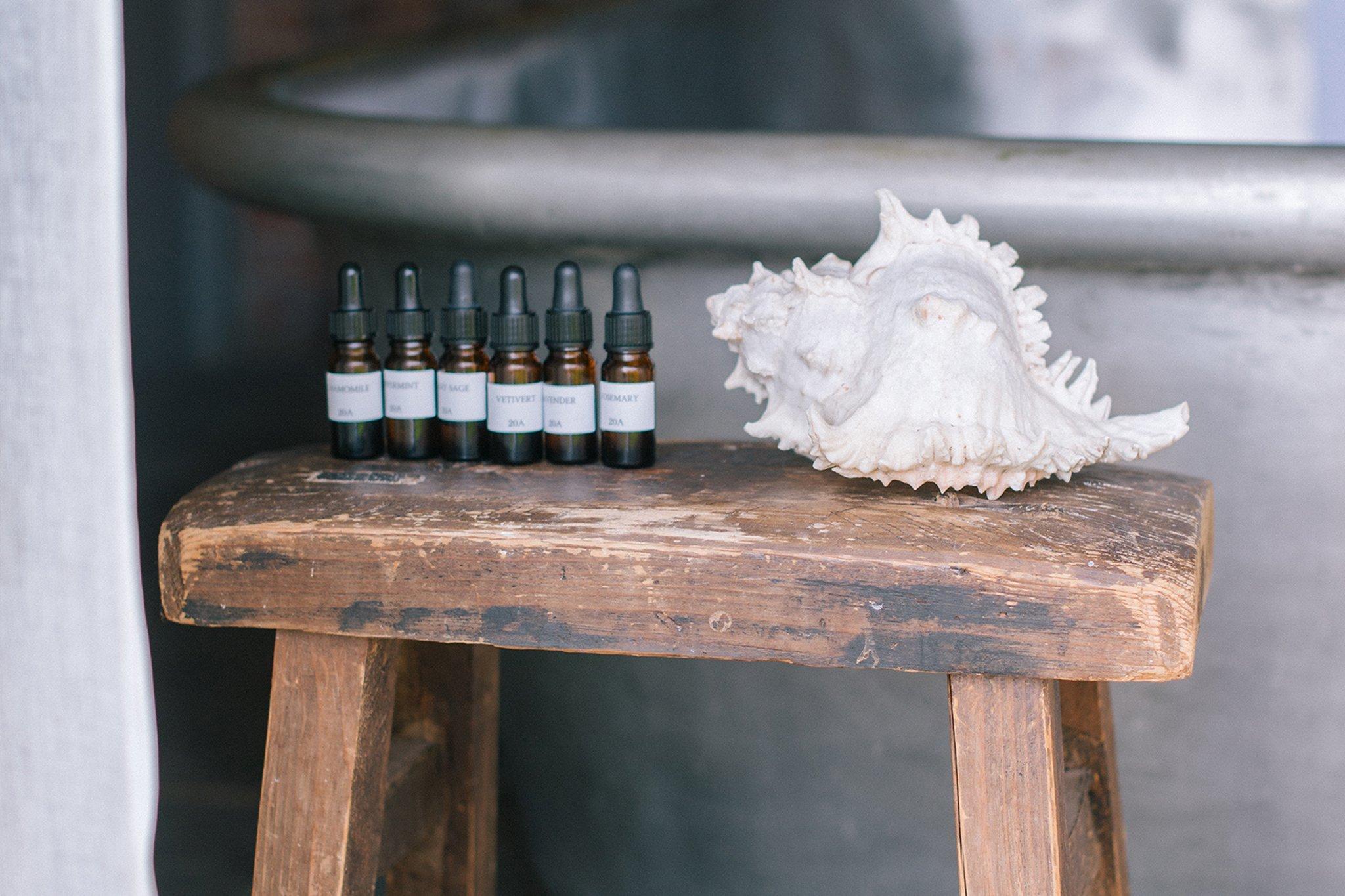A guide to aromatherapy and the best essential oils
Aromatherapy, explained. Plus the all-natural essential oils for every need – from stress to sleep, focus to energy
Want to give yourself a wellbeing boost but not sure where to start? We asked Abi Titterington Lough, an expert aromatherapist and founder of 20A Aromatherapy studio in London, to share her knowledge on essential oils – as well as their potential health benefits for stress, sleep, focus, energy, digestion and more. In our fast-paced, technology-fuelled modern lives, we often overlook the significance of scent and its potential for changing our mood. Read on to absorb the mind-body benefits of essential oils.
What is aromatherapy?
“Aromatherapy is the official term given to the practice of using essential oils therapeutically to support the body’s innate healing mechanisms.”
How does aromatherapy work?
“After absorption, either through the skin or via inhalation, the chemicals in the essential oils engage with us in three ways – pharmacologically (the changes that occur as they enter into the bloodstream) physiologically (changing the chemical messages and impulses sent around the body) and and psychologically (how they make us feel).”
What are essential oils?
“Essential oils are highly concentrated, strongly scented extracts that come from various parts of plants, including leaves, petals, bark, resins, roots and seeds. They can be considered the soul of a plant; each one has its own unique energy and attributes, properties and qualities, just like us.”
How far back do essential oils date?
“Natural aromatics have been a huge part of preventive medicine, religious and celebratory rituals of many cultures since antiquity. That said, the word ’aromatherapie’ was coined in the 1920s by a French chemist called René Maurice Gattefossé.”
What are the best ways to breathe in essential oils?
“It’s really simple – all you need to do is sniff! The scent receptors in our nose interact with the molecules in essential oils and influence the emotional centre of our brain. I recommend adding a single drop to a tissue and inhaling the scent. Of course, other delightful ways include using in a diffuser, pillow spray or bath oil.”
What are your tips for blending essential oils?
“Three is a nice number of scents to put together to create a synergy."
Best essential oils for…
Stress
“Bergamot possesses a unique ability to uplift and revive our psyche and state of mind, while sedating the nervous system. I call it the oil of optimism! Diffuse around a home or workspace for an instant ambience shift.”
Sleep
“Lavender is a nostalgic herb that instills a sense of comfort and serenity. It melts away physical and mental tension and prepares the body and mind for relaxation and rest. For optimum use, massage onto your feet before bed.”
Focus
“Rosemary "the brain tonic" is a cephalic (mind) oil that supports our cognitive function and memory, due to its 1,8-cineole content. It has a noticeable influence on our long-term brain health as well as being a useful study aid, hangover helper and jetlag tonic.”
Hormones
“Geranium is one of my most used oils for women at various stages of life - the onset of puberty, third trimester pregnancy, post partum and peri and menopause, because it reinstates equilibrium and brings harmony to any hormone havoc.”
Low mood
“Rose – the original heart tonic to soothe grief – encourages compassion and is healing in times of sadness, crisis and riding the ebbs and flows.”
Energy
“Grapefruit is a modern citrus oil that brings that vitality and vibrancy to our energy levels. It’s great for physical or emotional fatigue.”
Digestion
“Fennel supports the body in its natural digestion and detoxification process, as well as reducing gut spasms, gas and bloating. The scent is not for everyone, but it can be complemented with sweet orange, another digestive tonic. It’s best used in a carrier oil and massaged onto the tummy.”







